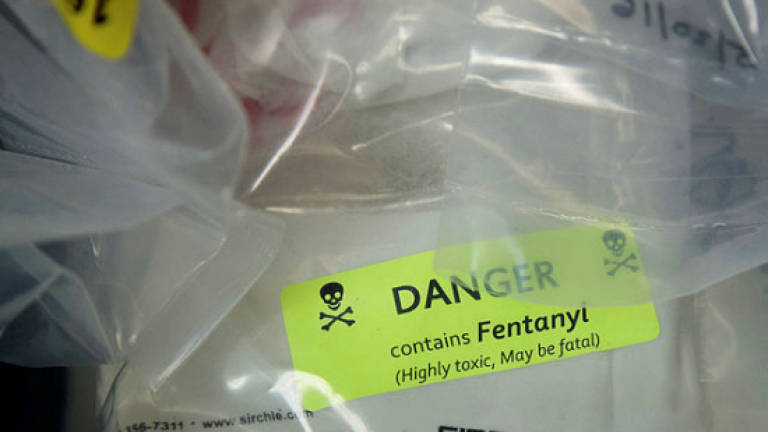Trump to declare opioid crisis 'public health emergency'

WASHINGTON: US President Donald Trump on Thursday is to declare the opioid crisis a "nationwide public health emergency," stepping up the fight against an epidemic that kills more than 100 Americans every day, officials said.
Trump is to make the announcement at an event at the White House later Thursday attended by former addicts and parents of victims, the senior administration officials said.
Trump has repeatedly said, as recently as Wednesday, that he planned to declare a "national emergency" to fight the abuse of opioids such as Percocet, OxyContin, heroin and fentanyl.
But the officials said that instead of declaring a national emergency, the president would order the acting secretary of health and human services to announce a "nationwide public health emergency."
A national emergency gives states access to federal disaster relief funds but the officials said a public health emergency declaration was more appropriate in battling a longterm crisis such as the opioid epidemic.
The declaration does not provide any increased federal funding to address the crisis but the officials said the White House would seek more money from Congress to do so.
The officials said the public health emergency declaration lasts for 90 days and can be renewed repeatedly.
It will allow the Department of Labor, for example, to provide dislocated worker grants to opioid addicts to help them break what an official called the "cycle of addiction and unemployment."
It will also provide increased access to telemedicine treatment for people in rural areas such as Appalachia and the Rust Belt, which have been particularly hard hit by the opioid crisis.
Last public health emergency was in 2009
In addition, the president would direct the heads of government agencies and departments to "exercise all appropriate emergency authorities that they have to reduce the number of deaths and minimize the devastation caused by the opioid crisis," an official said.
The last time a public health emergency was declared in the United States was in 2009 in response to the H1N1 influenza outbreak.
A commission set up by Trump to look into drug addiction and abuse made an "urgent recommendation" earlier this year that the president declare a national emergency under the Public Health Service Act or the Stafford Act.
The Stafford Act allows the federal government to provide assistance to states to help them deal with major disasters such as earthquakes, tornadoes and hurricanes.
The Public Health Service Act gives the Department of Health and Human Services the authority to respond to public health emergencies.
According to the commission, 142 Americans died every day from a drug overdose in 2015 — more than the number killed in car crashes and gun homicides combined.
Two-thirds of the drug overdose deaths in that year were linked to Percocet, OxyContin, heroin and fentanyl, the commission said.
Prescription painkillers and heroin contributed to some 60,000 overdose deaths in the United States in 2016, a 19% surge over the previous year, according to an estimate compiled by The New York Times. — AFP